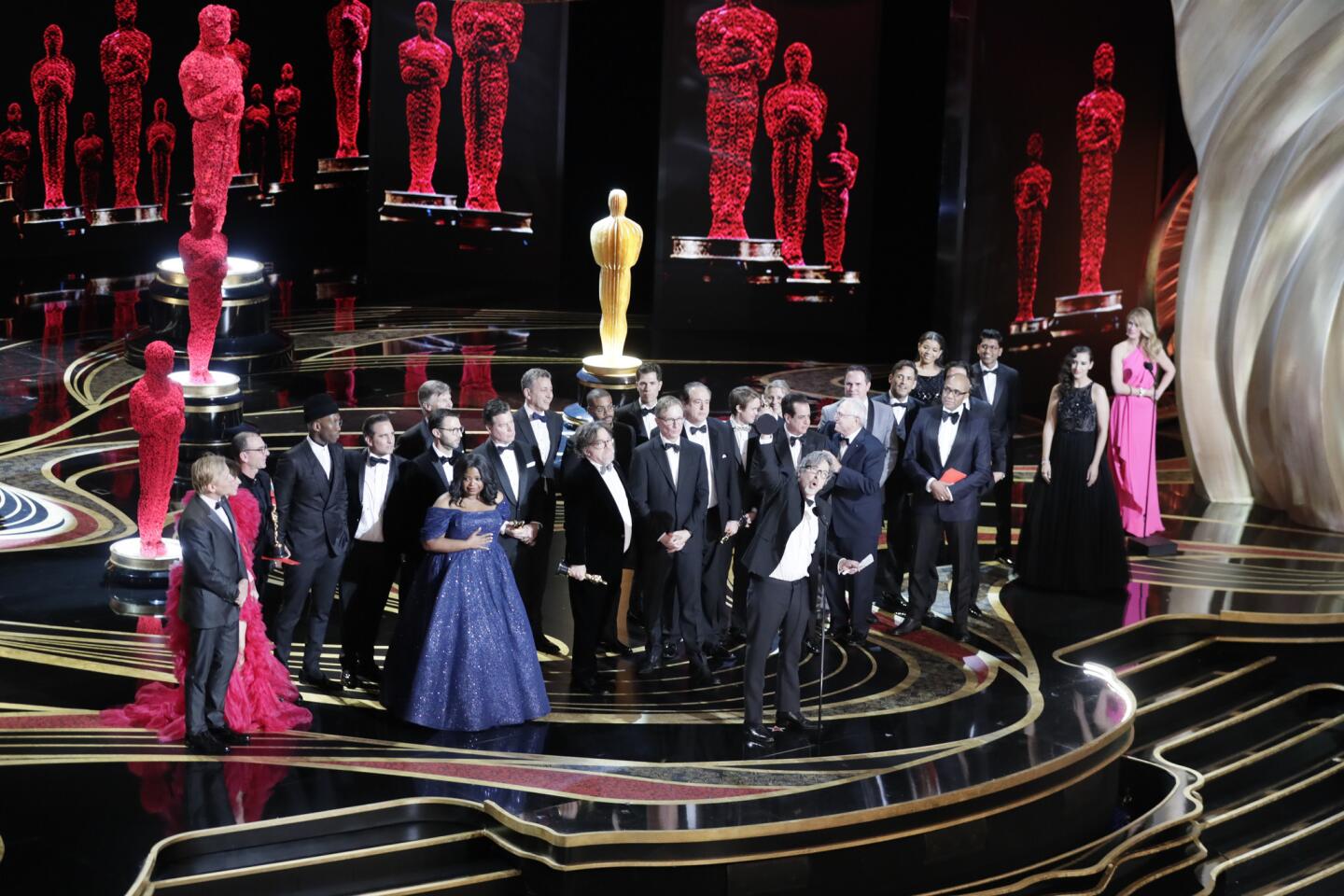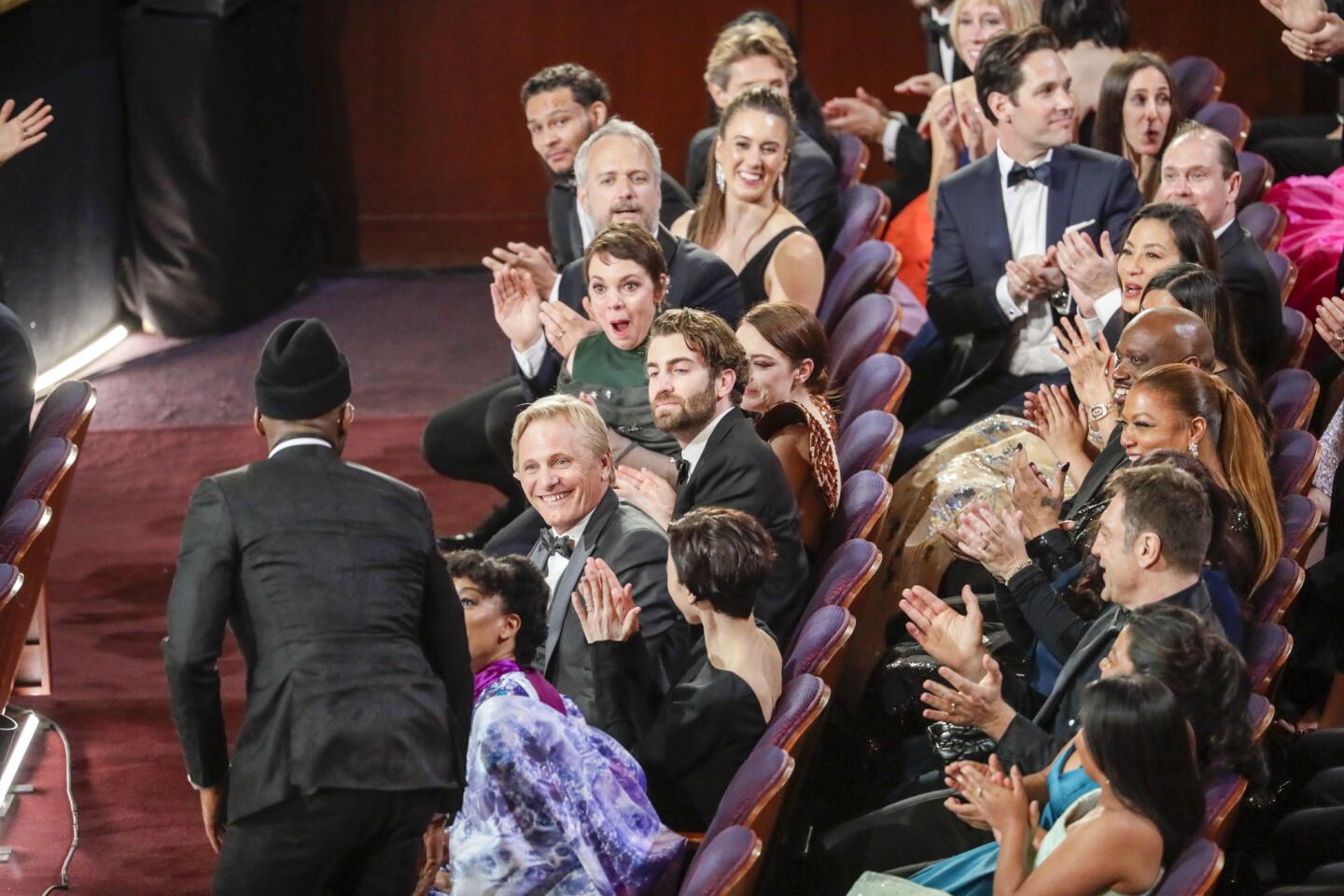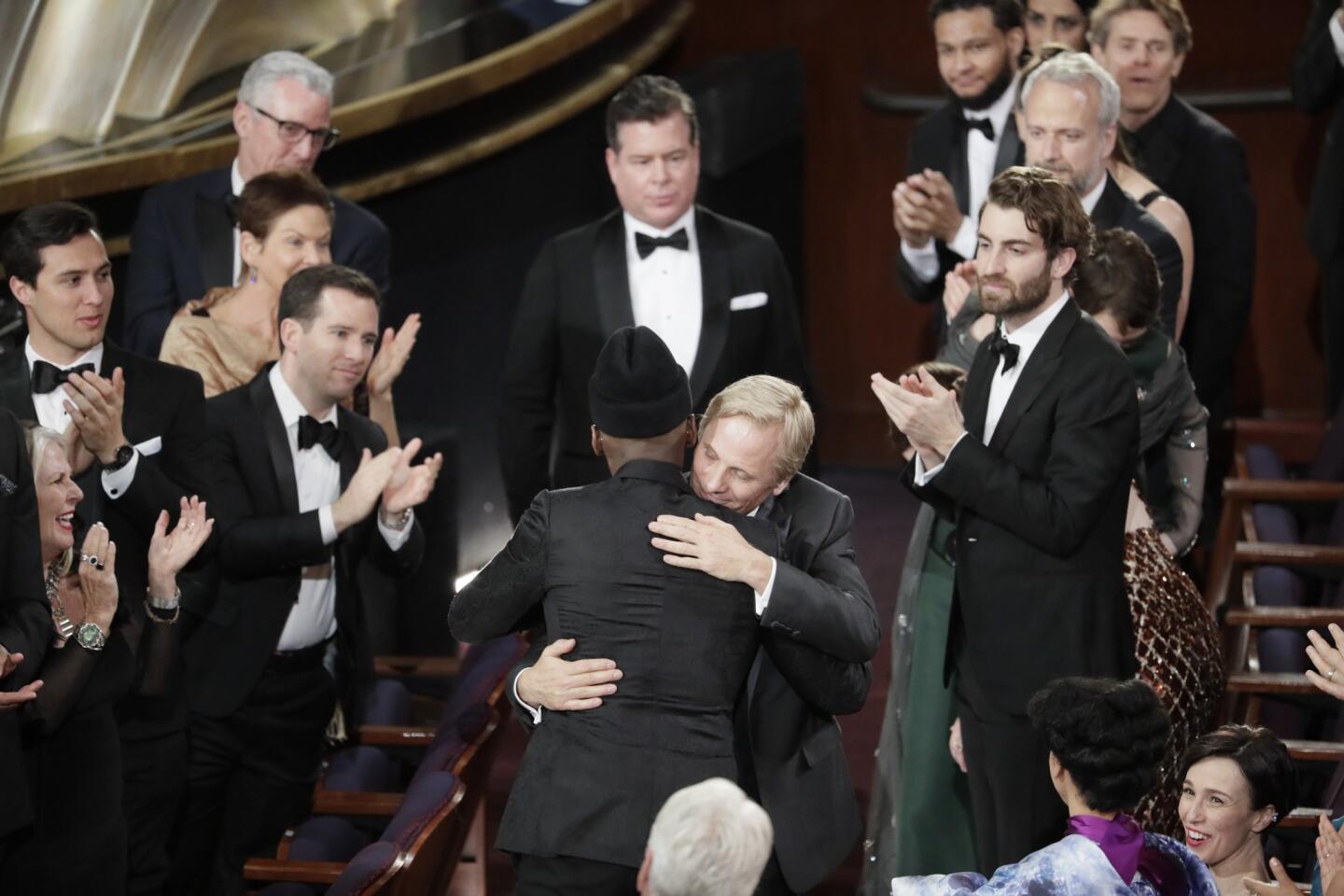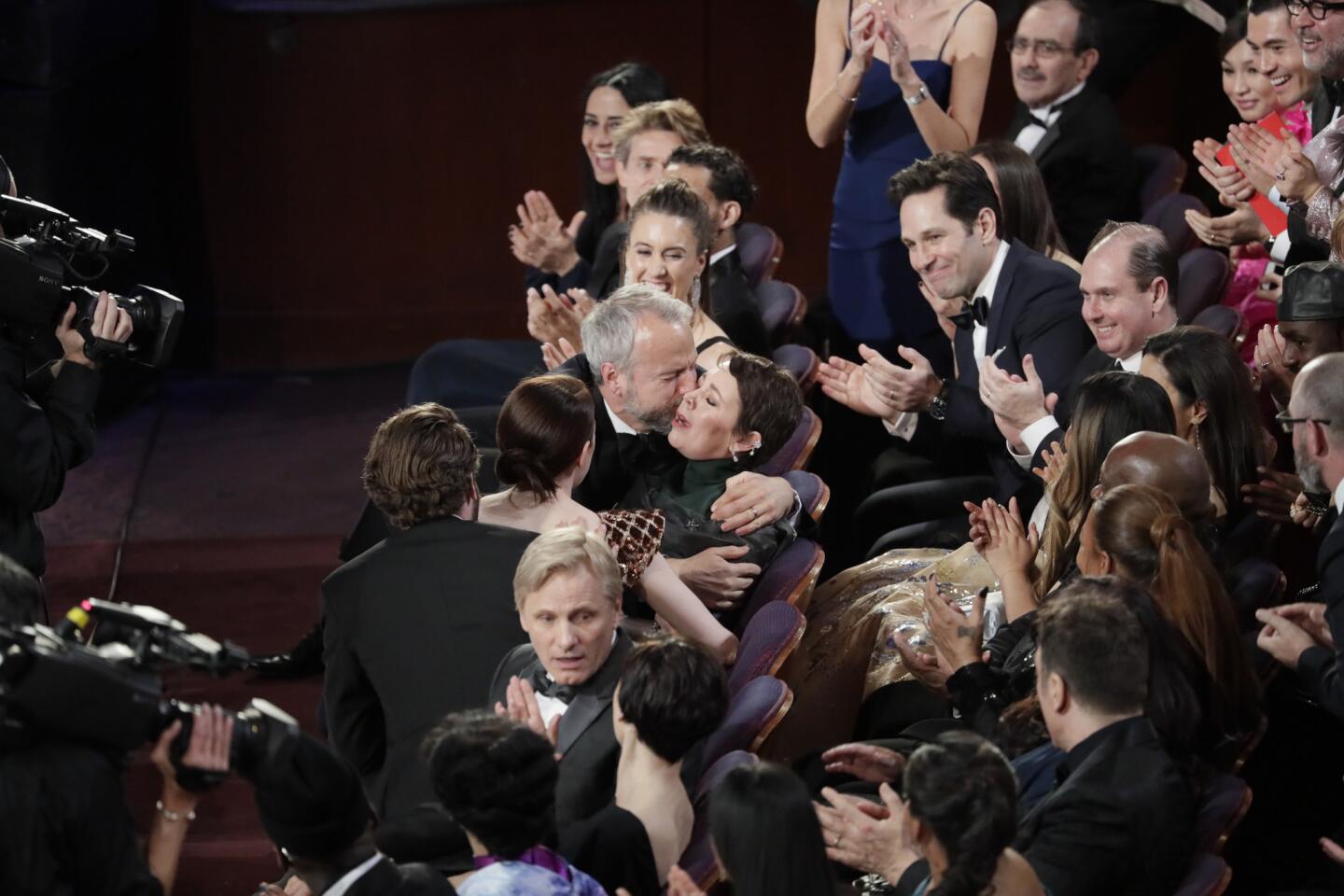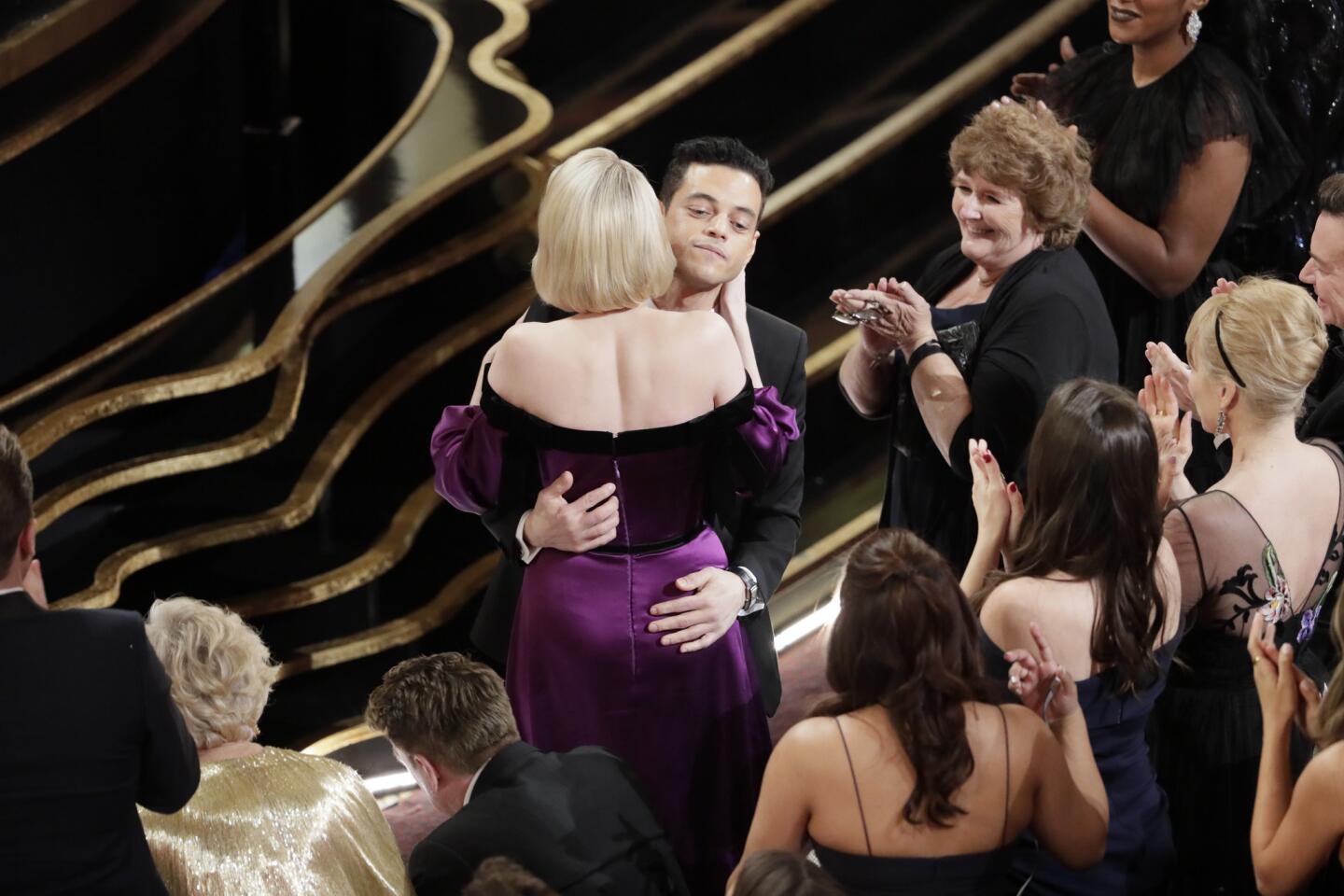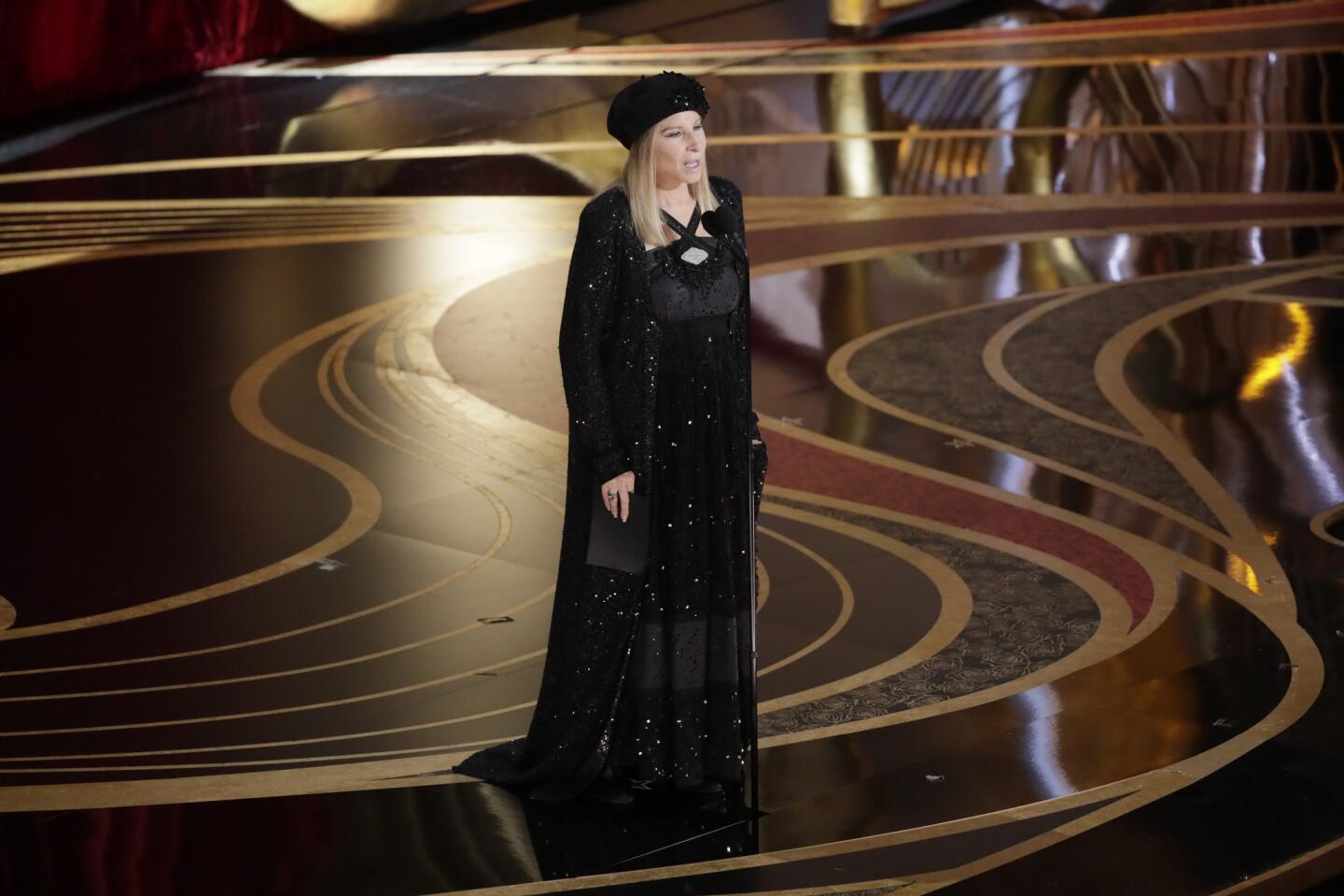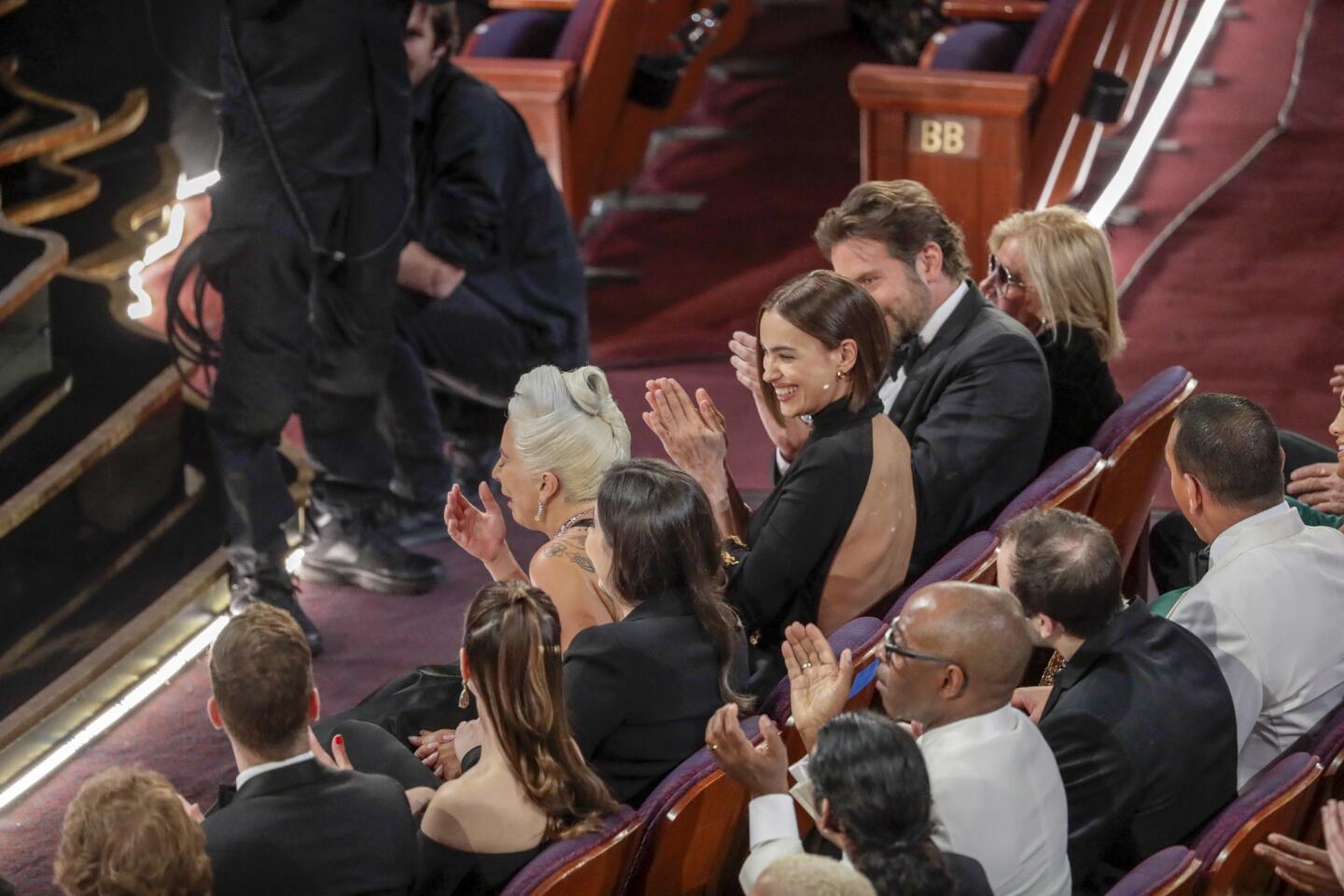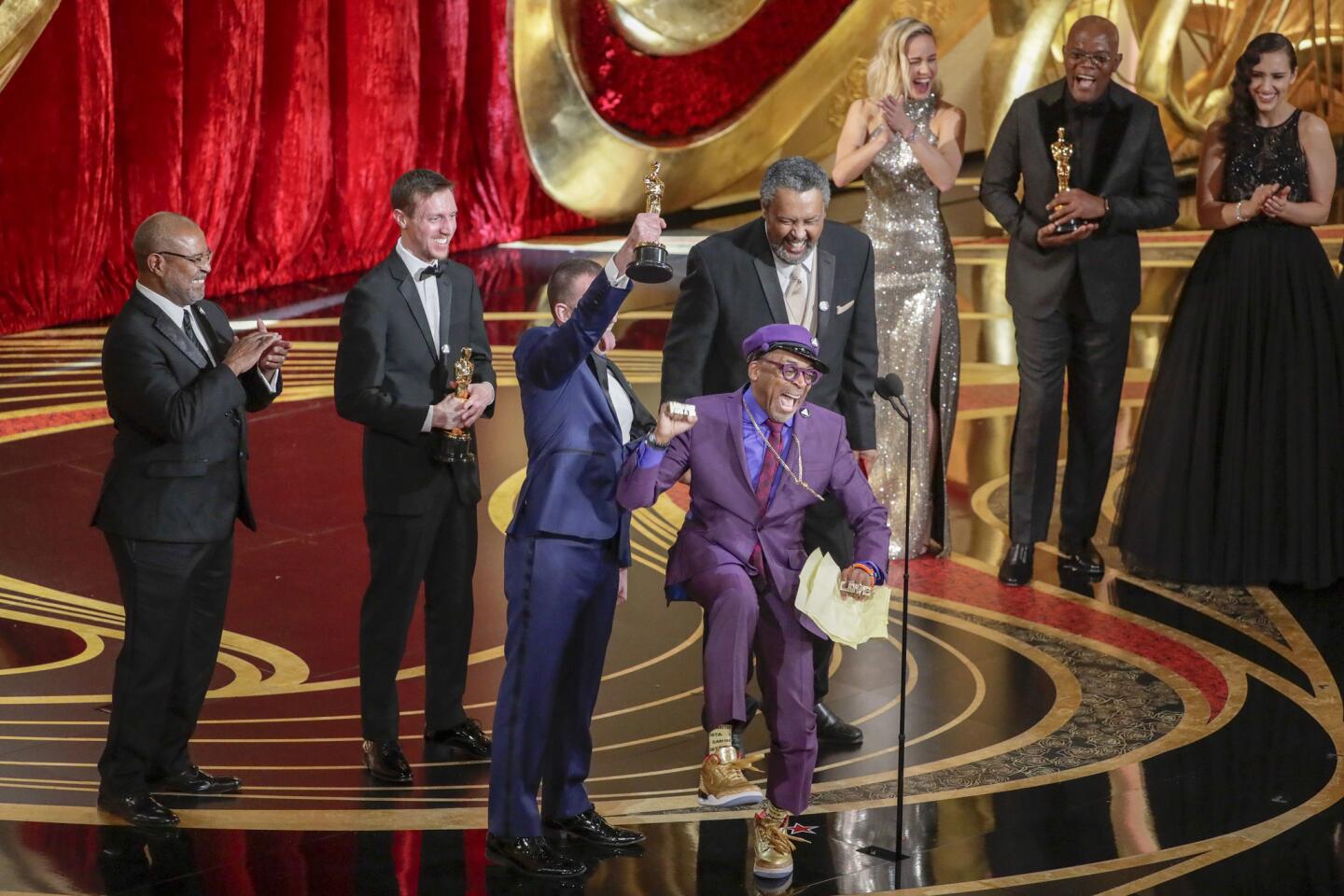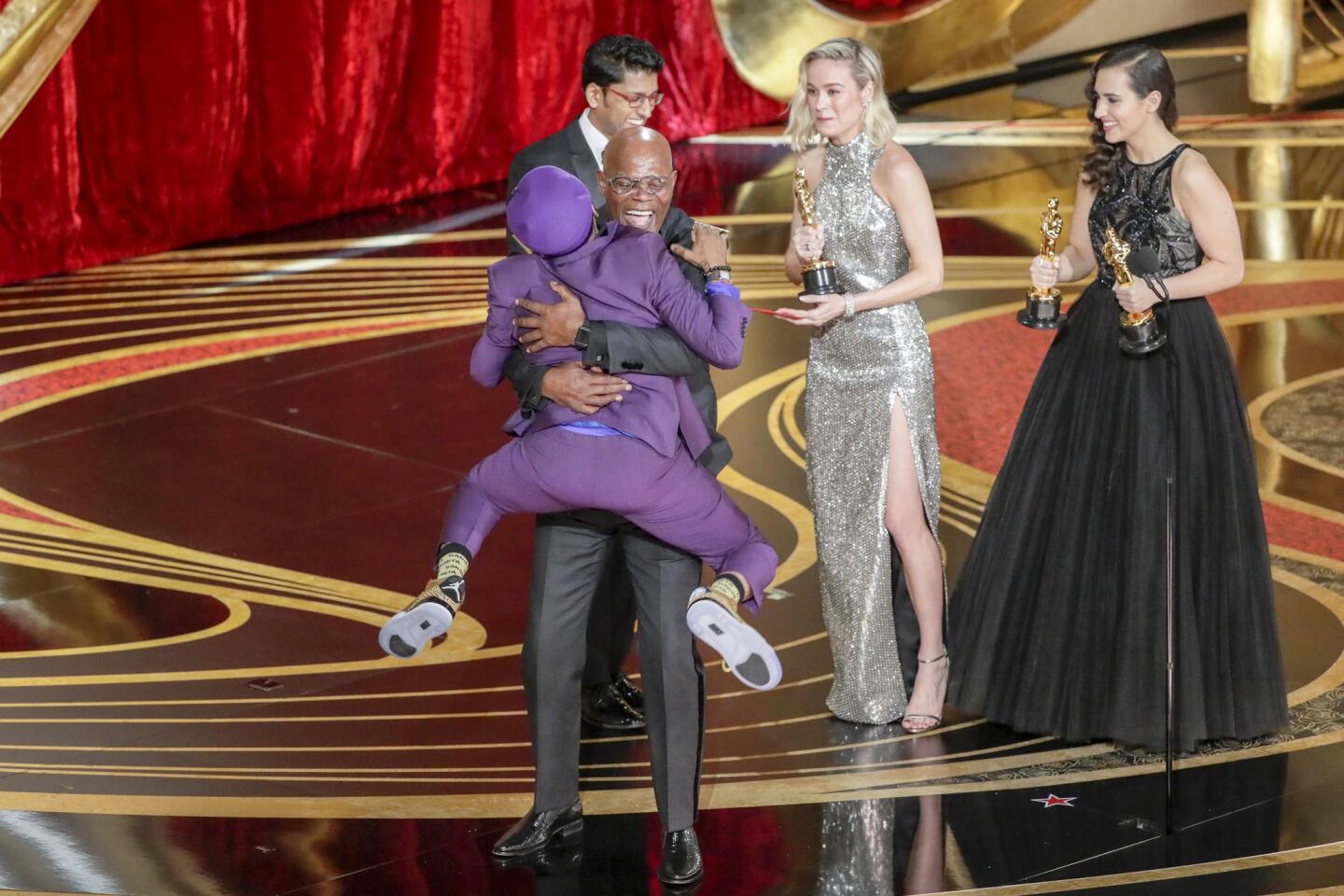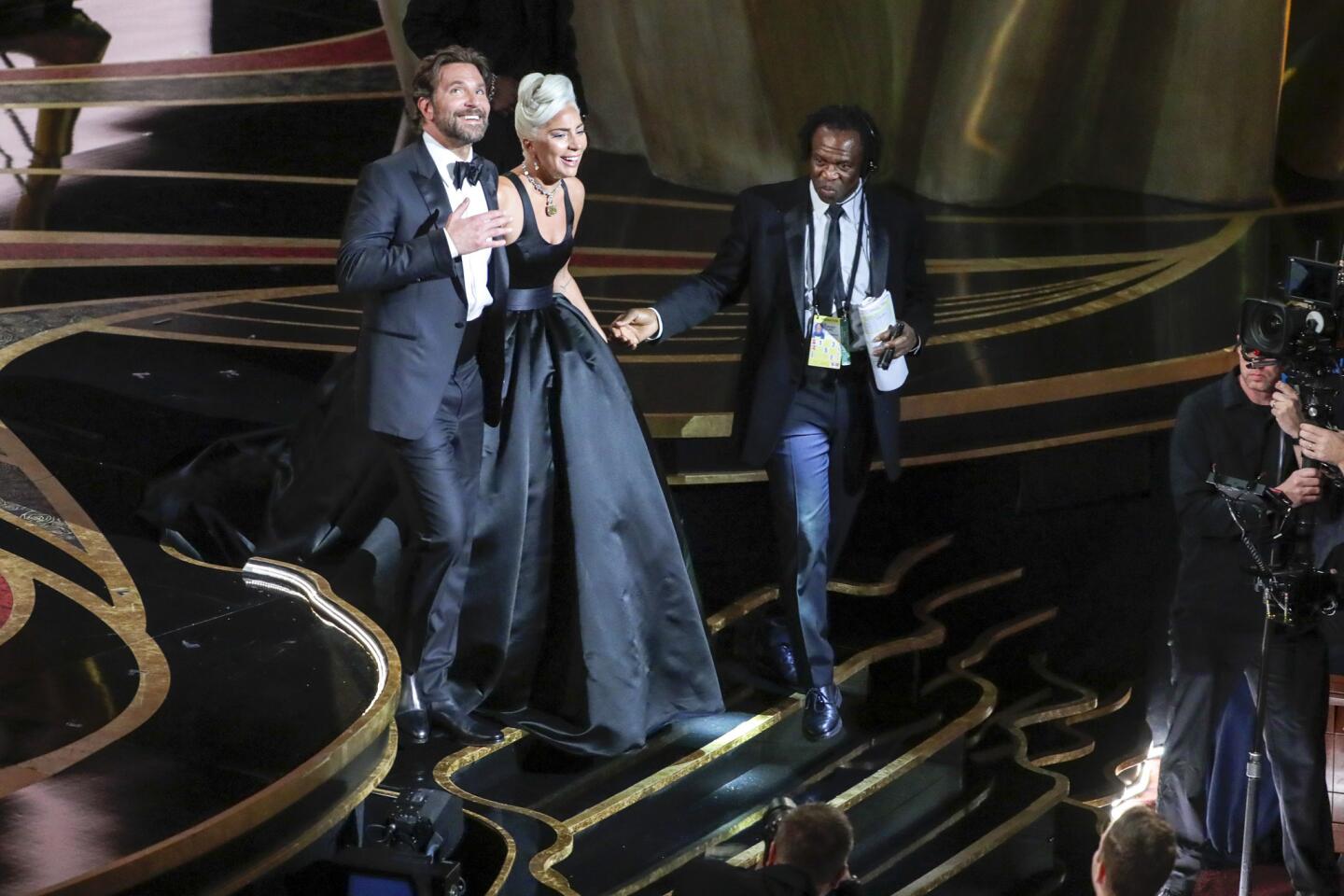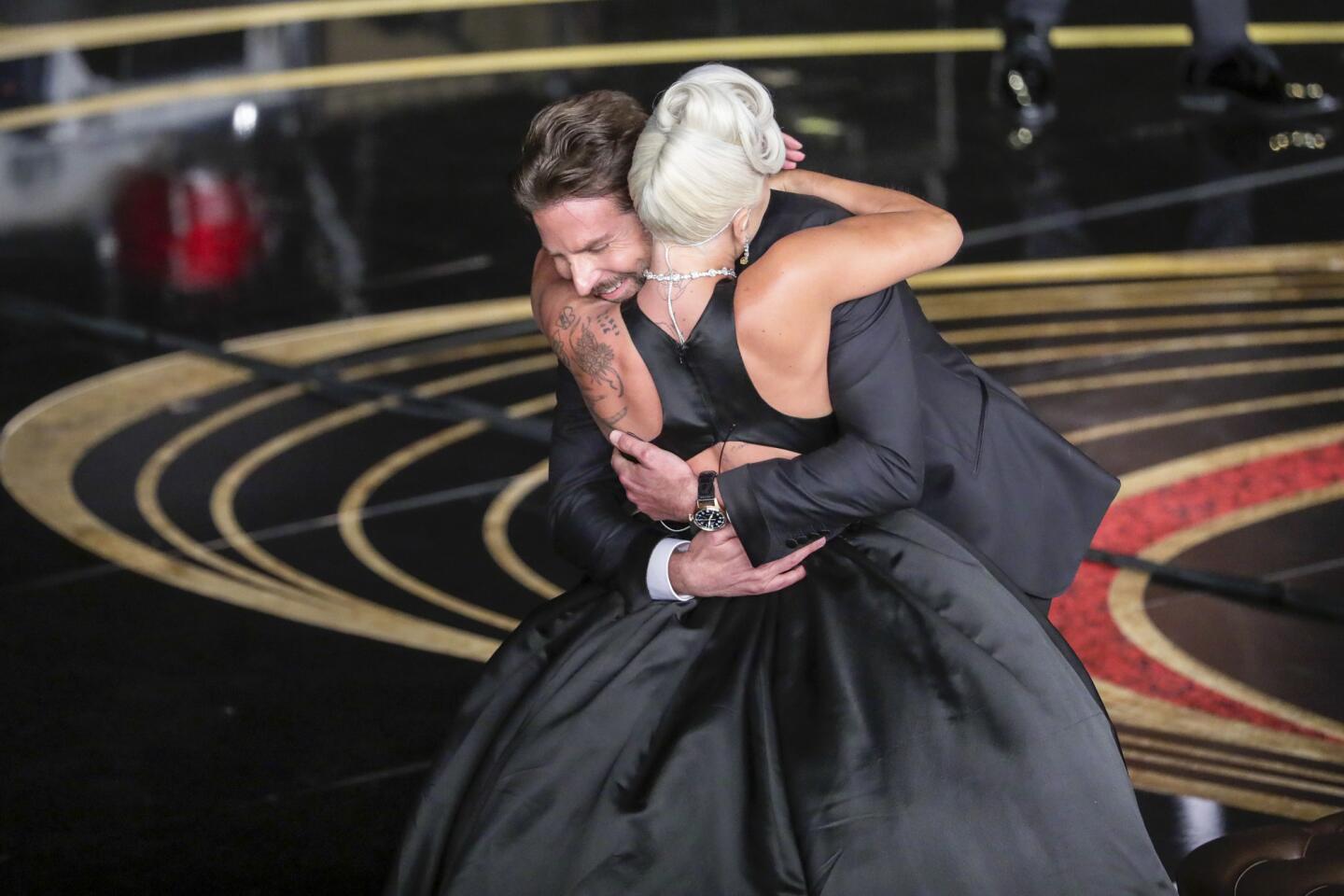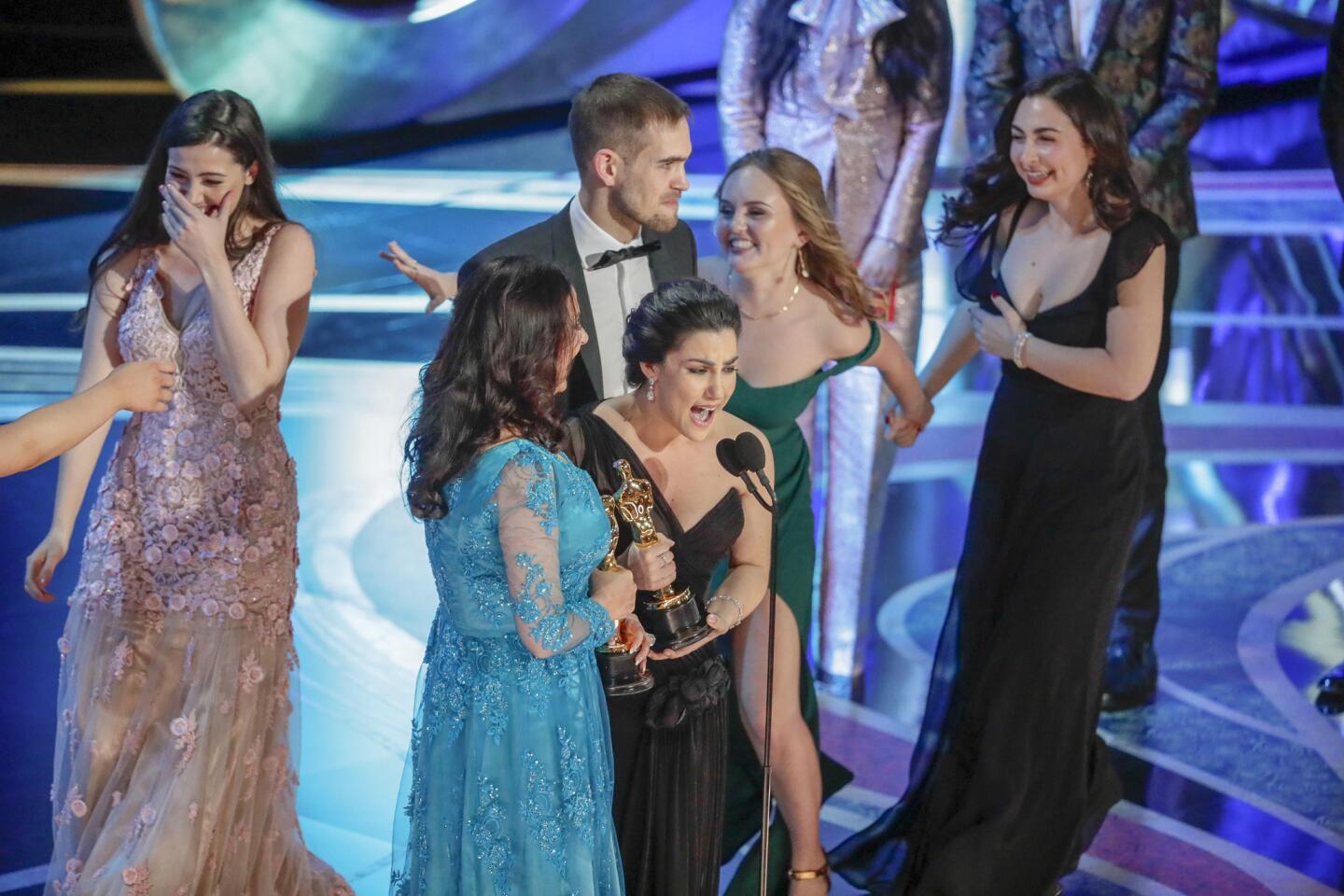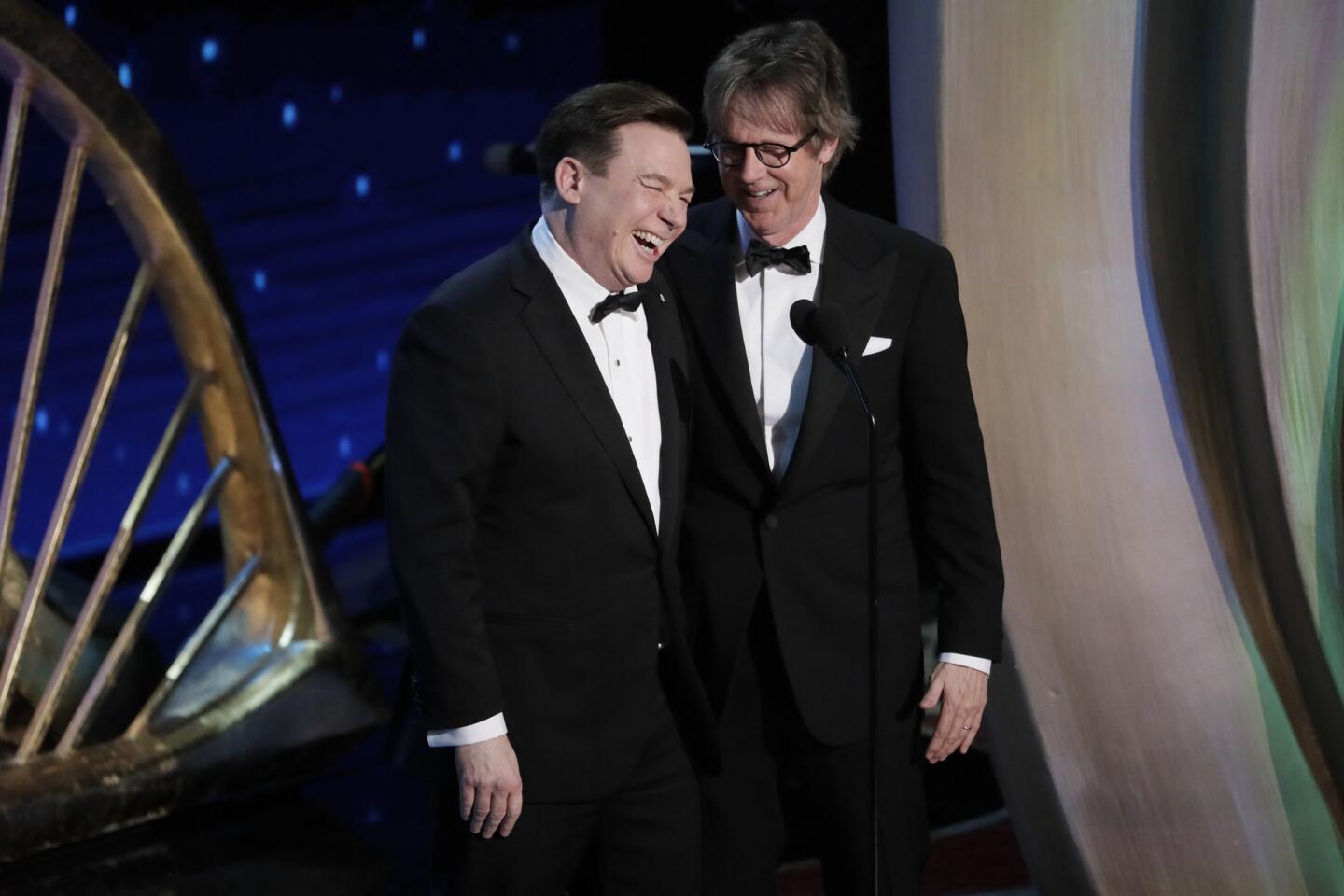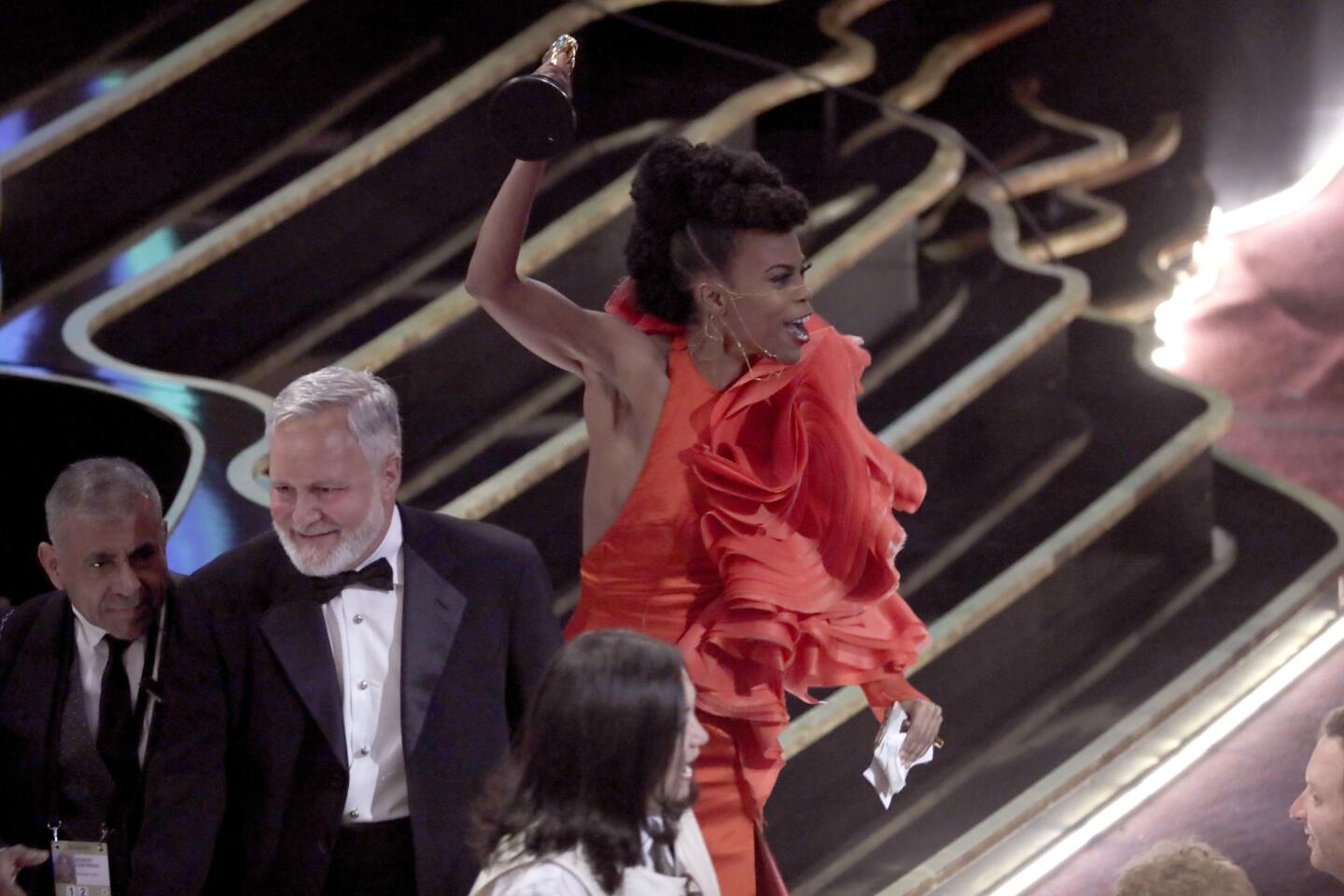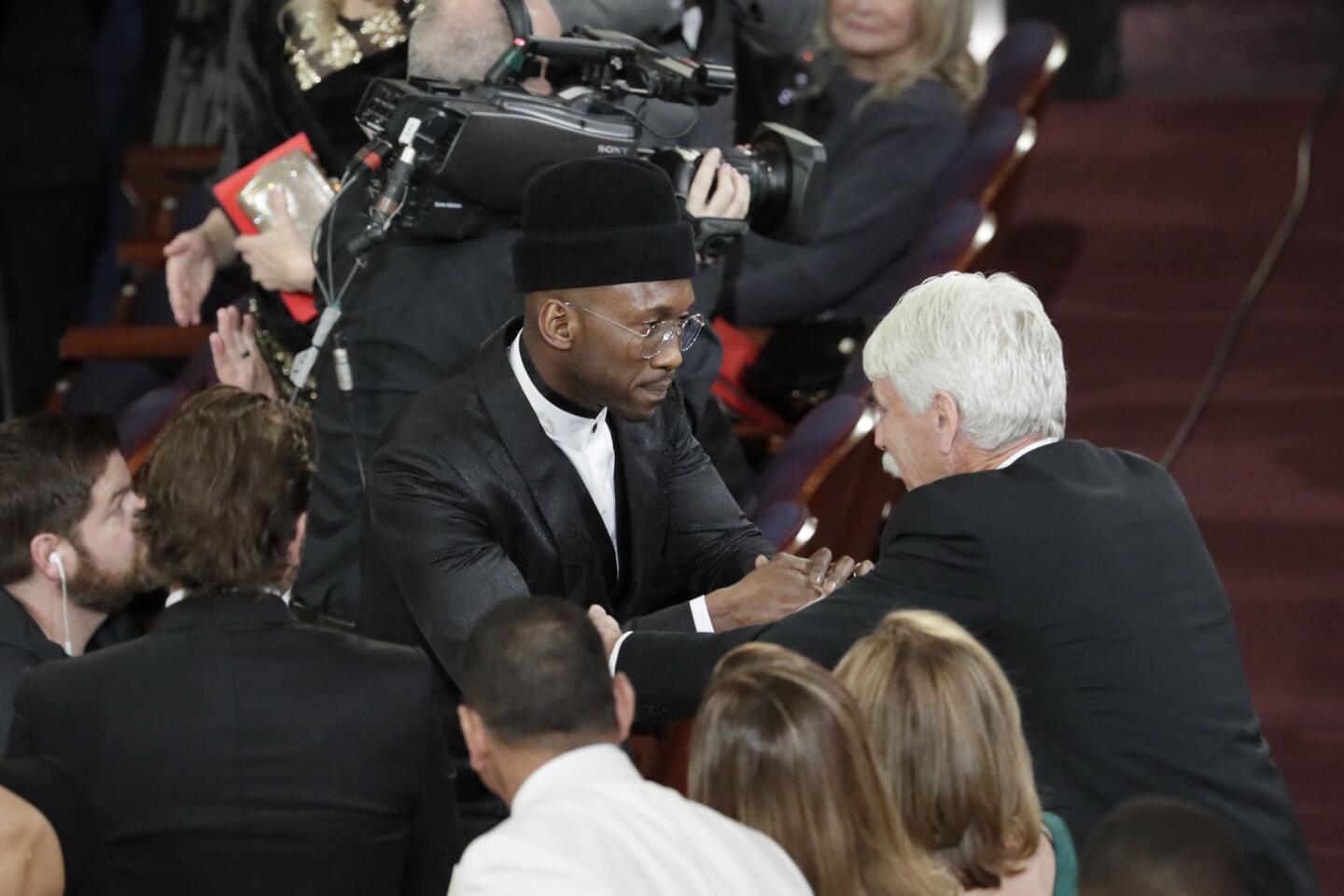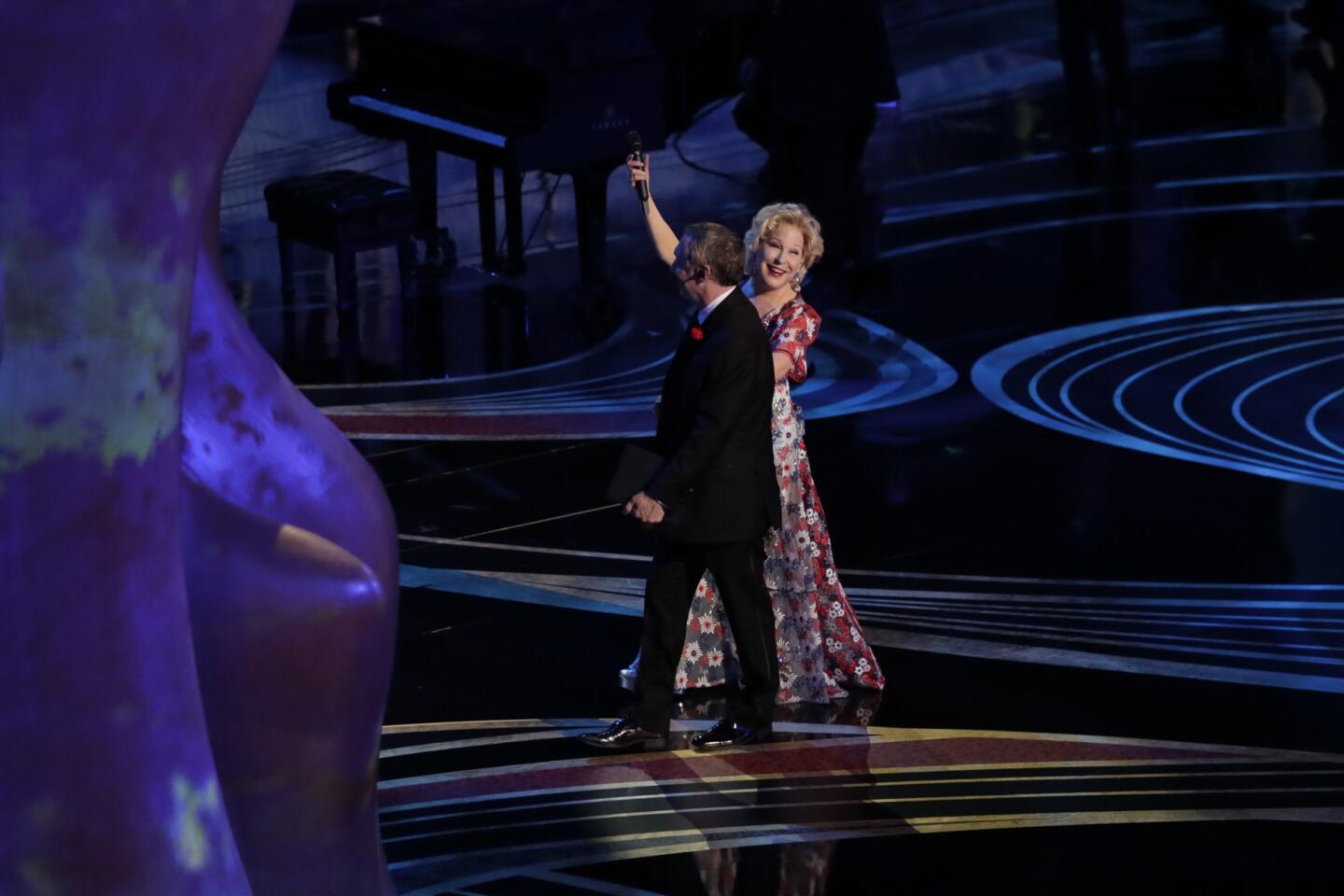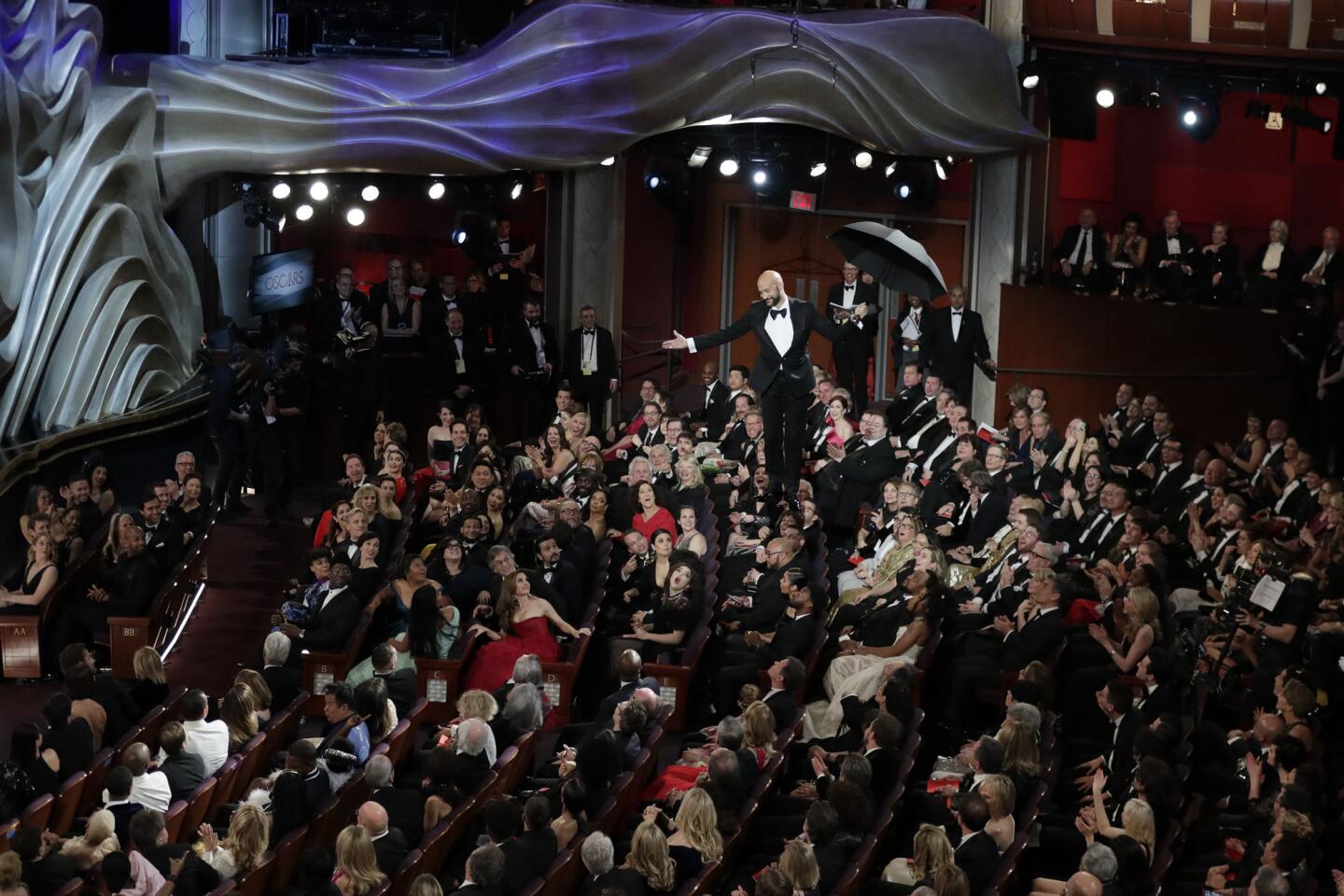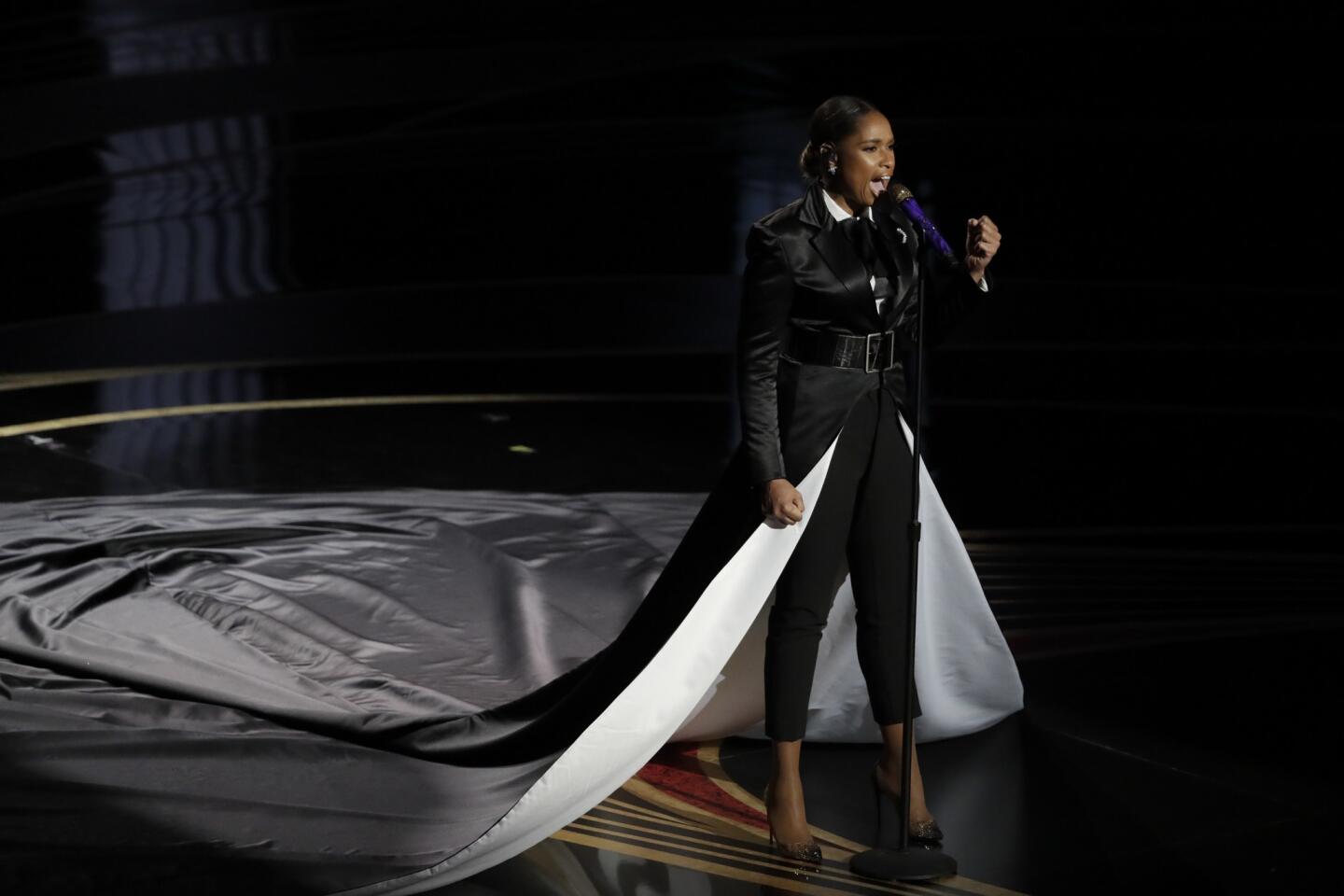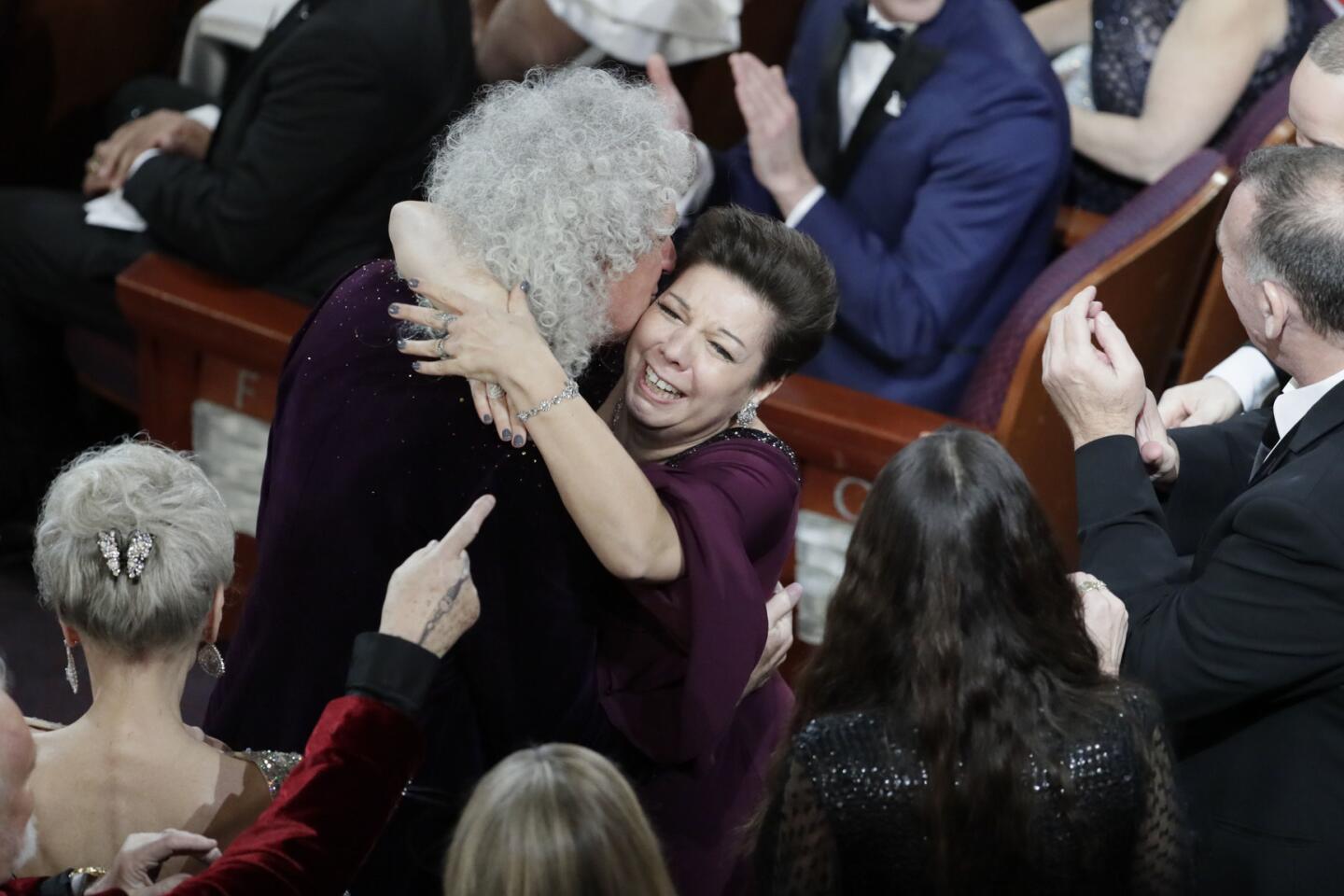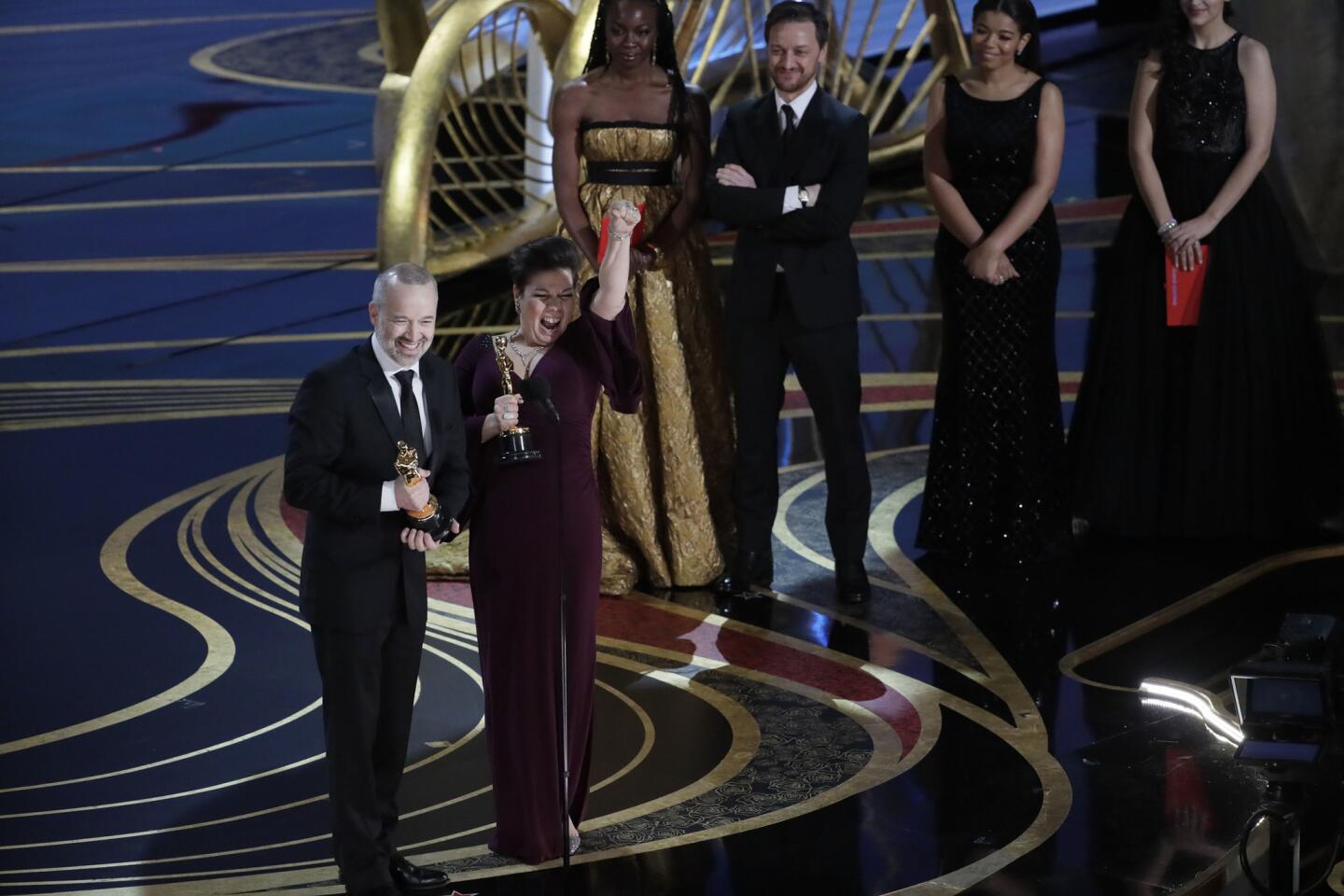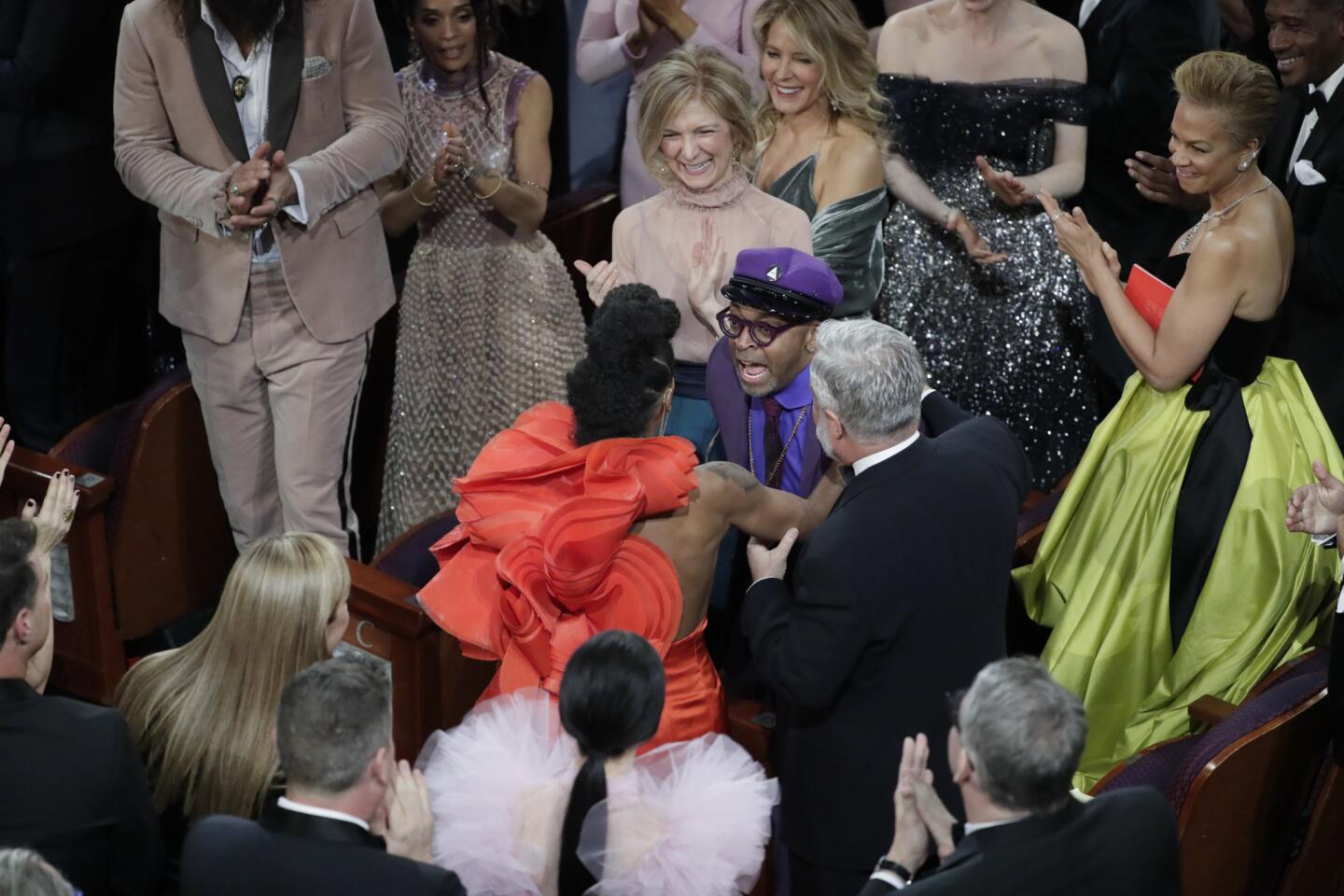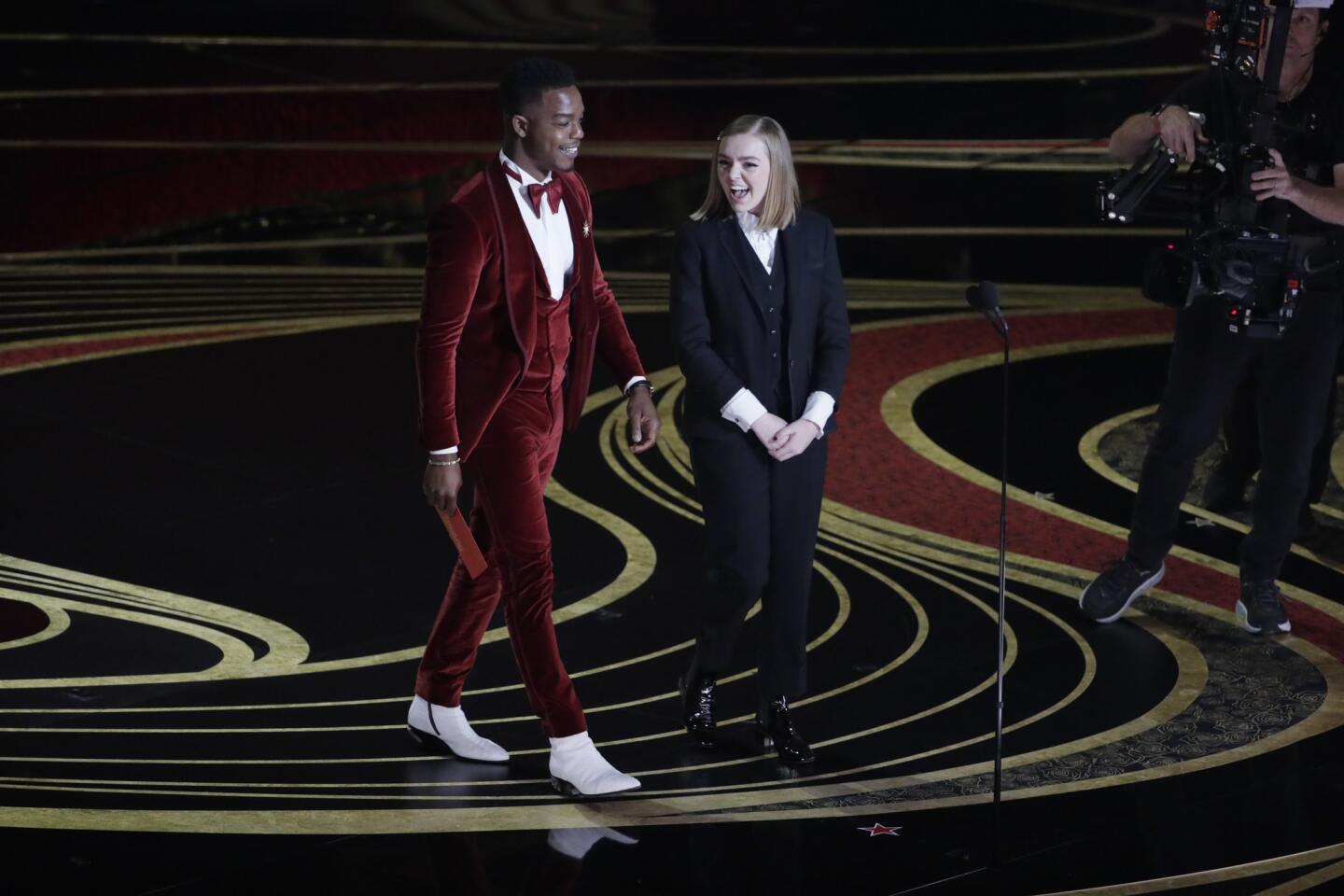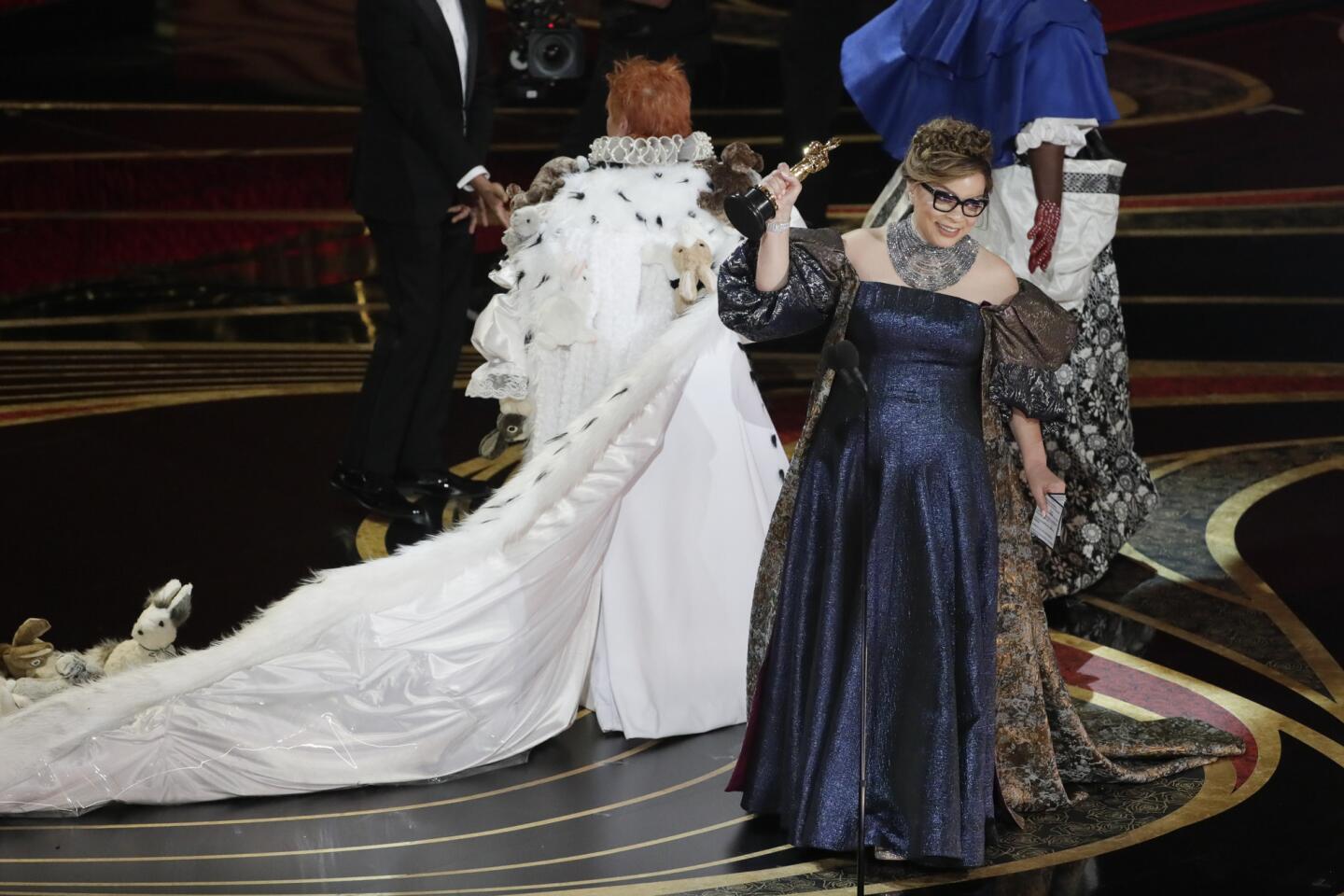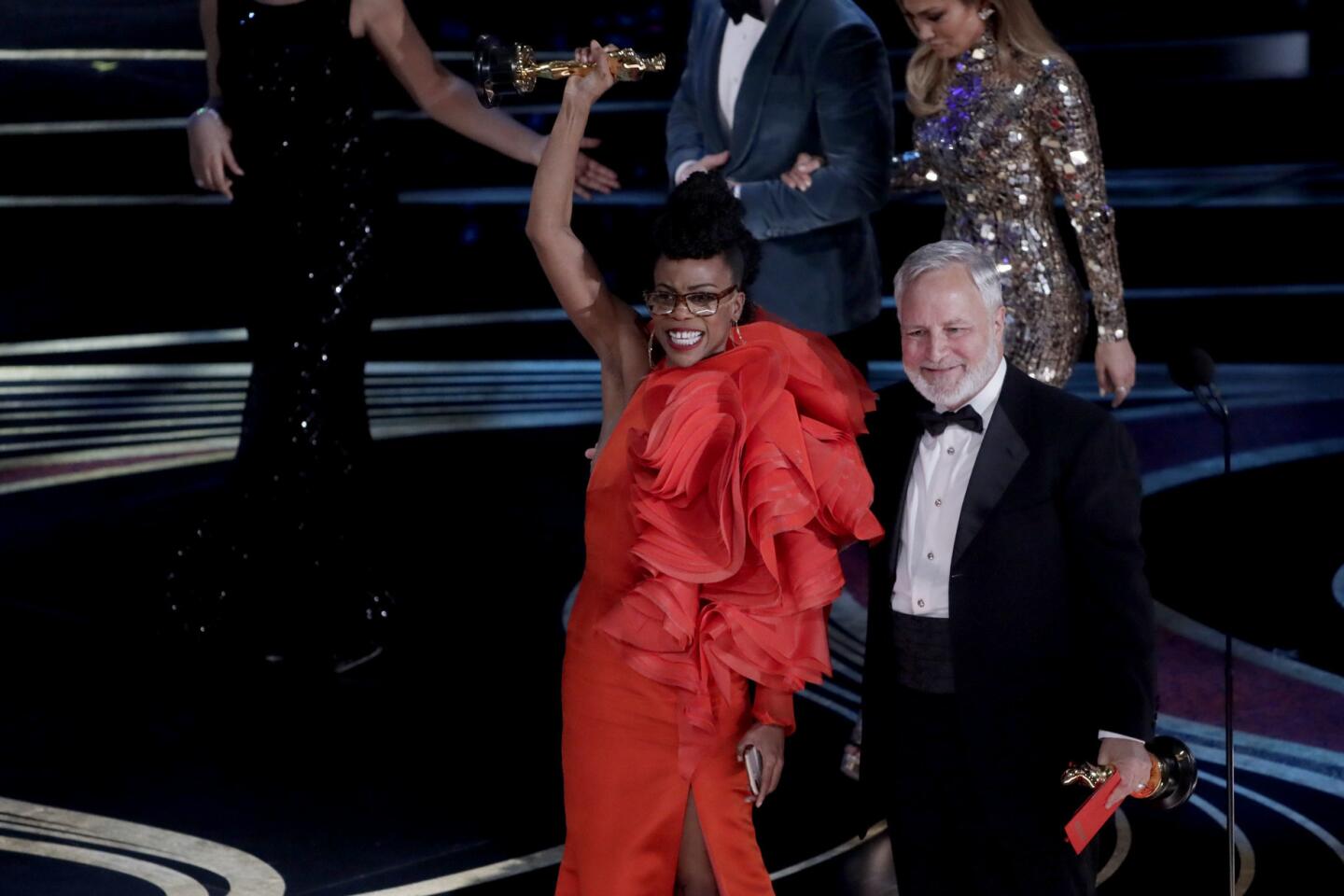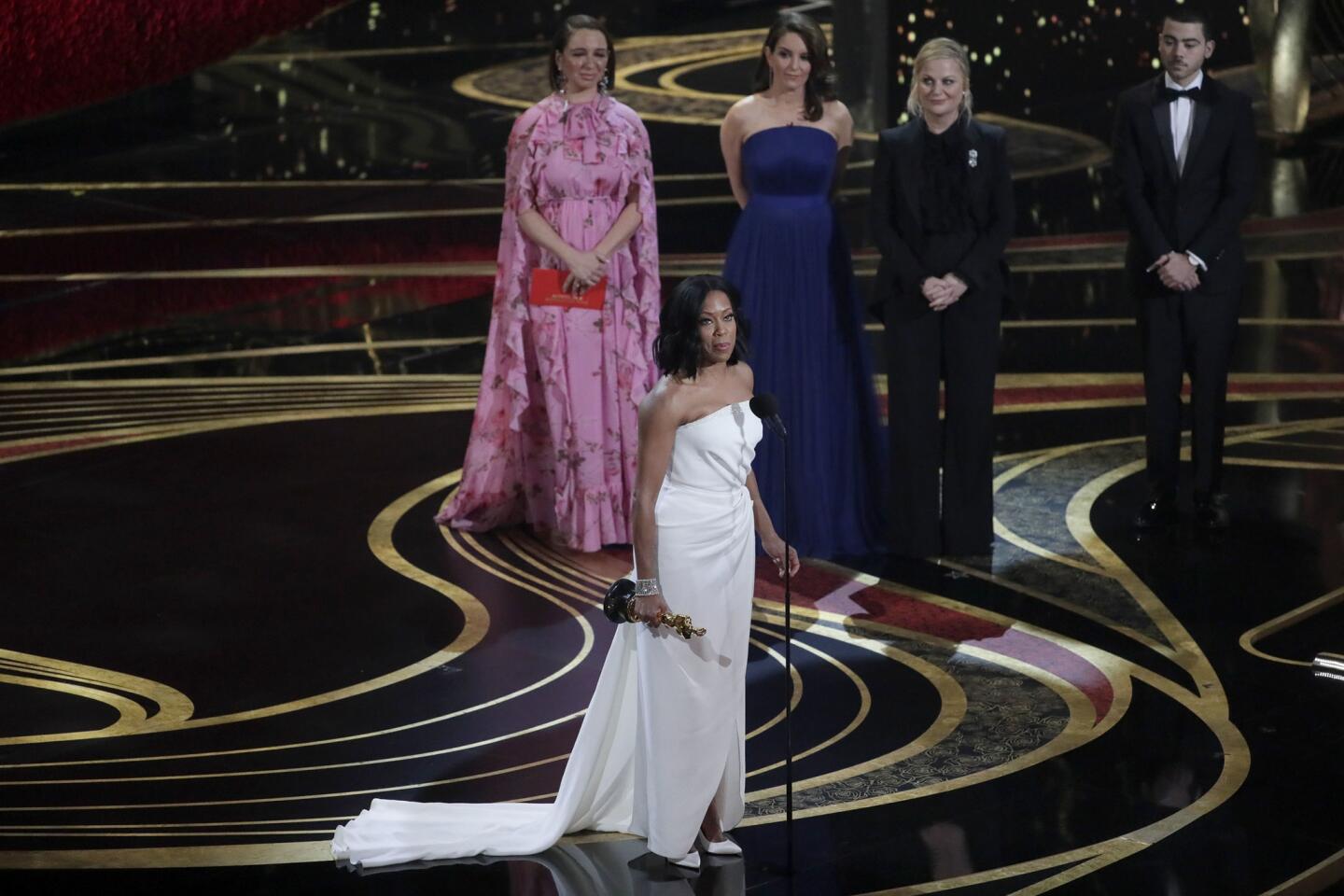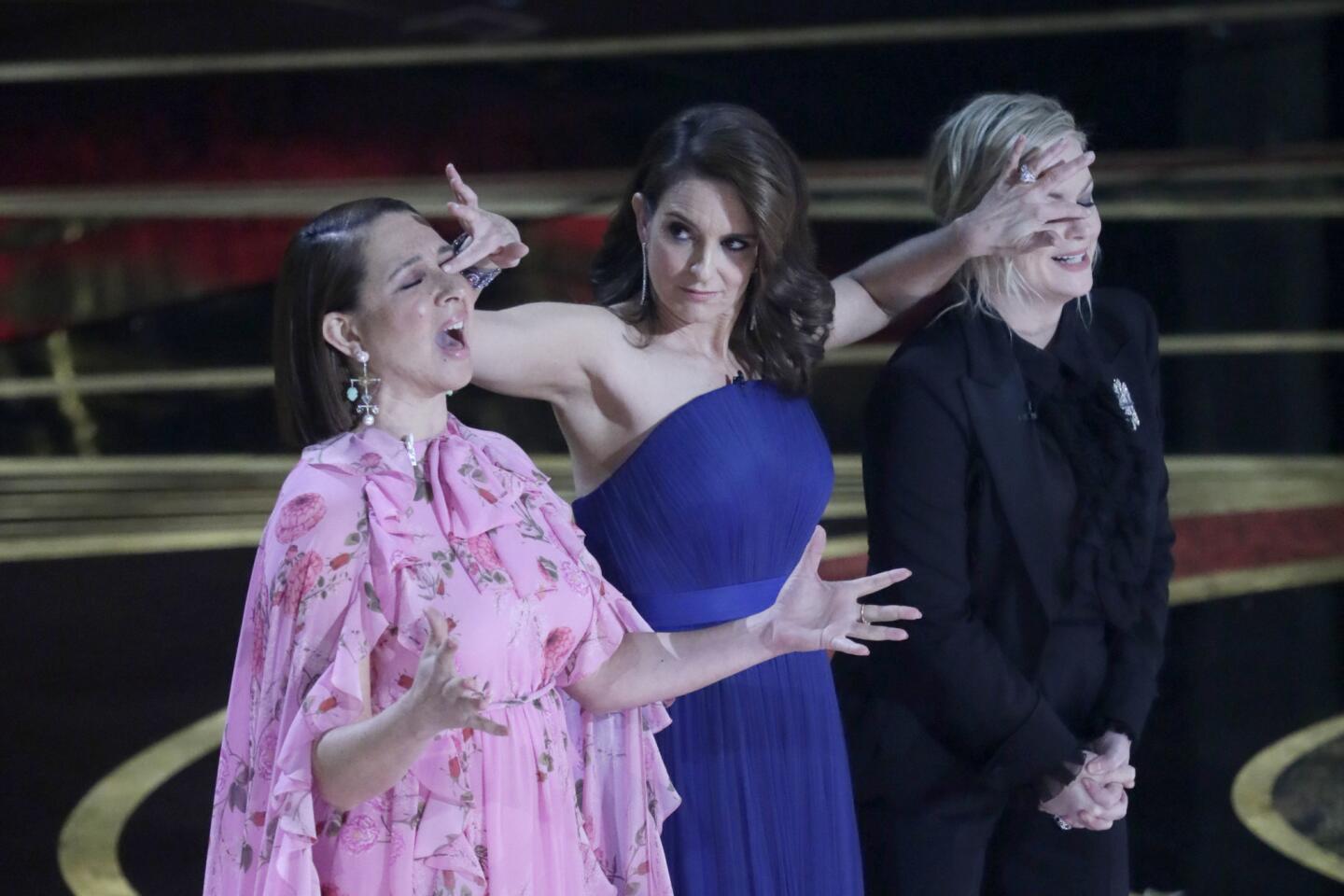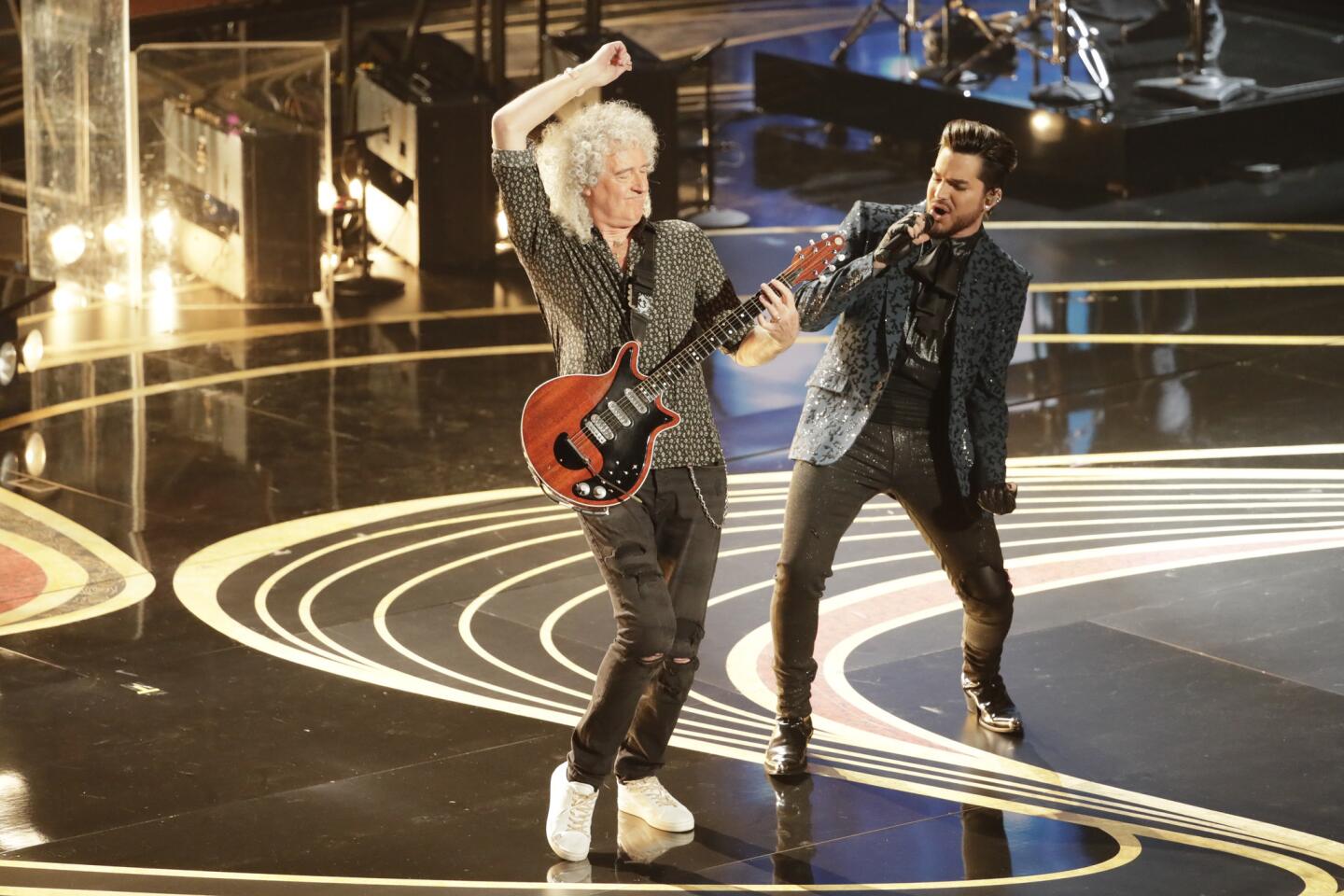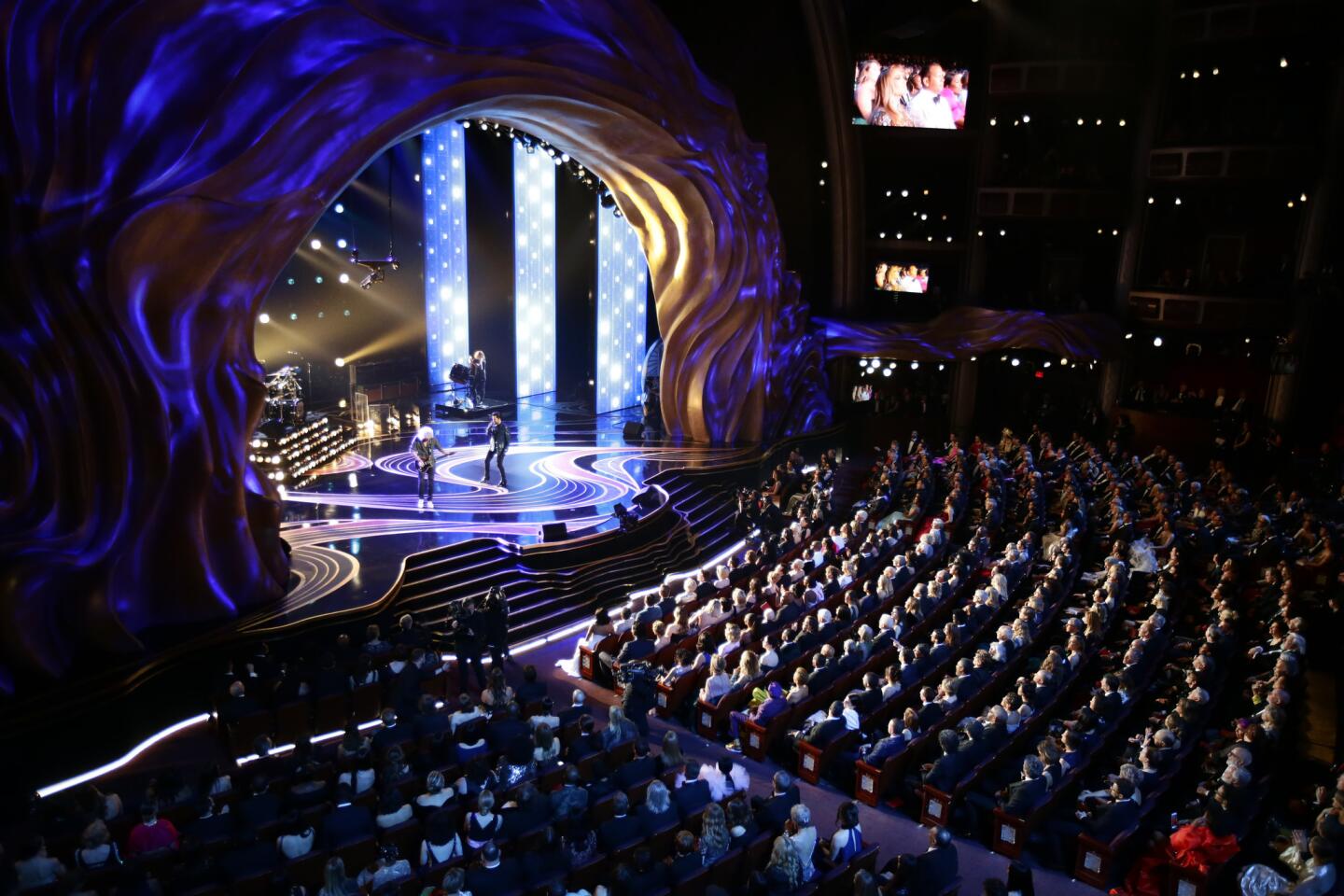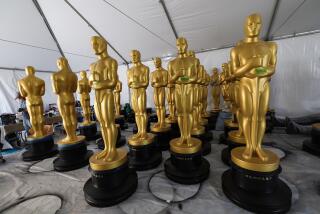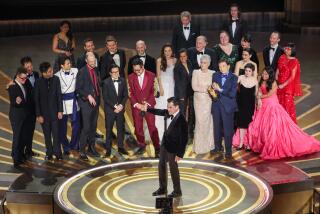Oscars 2019: 29.6 million viewers watch, a gain of 12% from last year
ABC’s determination to have a faster-paced Oscars telecast paid off as the audience for Sunday’s ceremony grew nearly 12% over 2018 levels.
The 91st Oscars averaged 29.6 million viewers compared to 26.5 million a year ago, when viewership hit an all-time low, according to Nielsen.
For the record:
3:00 p.m. Feb. 25, 2019A previous version of this story said that Sunday’s Oscars telecast began half an hour earlier than last year. It began at the same time as last year, 5 p.m. PST/8 p.m. EST.
After comedian Kevin Hart bailed out as Oscars host due to a backlash over past gay-related jokes, ABC and the motion picture academy decided to air the ceremony without a host. Nonetheless, the program, which began at 5 p.m. PST, ran smoothly and clocked in at about 3 hours and 20 minutes (the last commercial break ended at 8:13 p.m.), shorter than the 3 hours and 32 minutes the telecast had averaged from 2010 to 2018.
ABC also saw a 13% gain in the 18-to-49 age group, the demographic most important to advertisers who buy commercial time on the telecast.
The increase indicates that the recent tumble in viewing levels for TV awards shows may have hit a floor. The audience for the Grammy Awards earlier this month was also steady year over year after a steep decline in 2018. Major awards programs have declined in recent years as younger viewers are spending less time with traditional TV and watching more video online.
In 2018, the Oscars audience level dropped 19%, the fourth straight year it had declined.
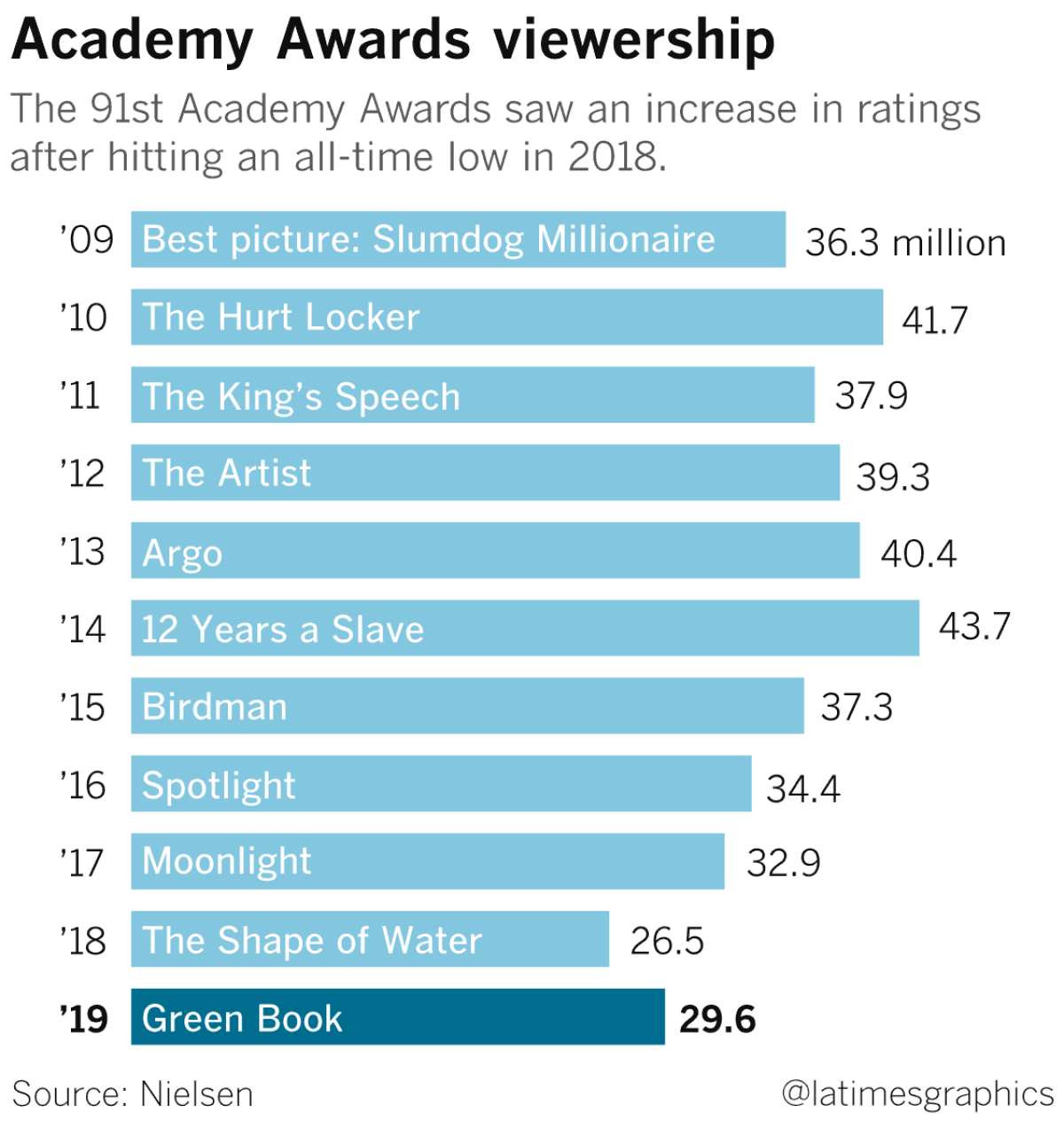
The Oscars had the benefit of crowd-pleasing musical performances from arena rockers Queen, and Lady Gaga and Bradley Cooper, who delivered a showstopping version of the winner for best original song, “Shallow,” from “A Star Is Born.”
It also helped that the 91st Oscars telecast had some suspense going into the best picture category, as “Roma” was a favorite but far from a shoo-in. The film ultimately lost to “Green Book.” There was also a surprise win in the best actress category with Olivia Colman honored for “The Favourite.”
There was something for fans of every major contending film, with “Green Book” also winning for original screenplay and supporting actor (Mahershala Ali), “Roma” for best director (Alfonso Cuarón), cinematography and foreign-language film, “Bohemian Rhapsody” for best actor (Rami Malek) and “If Beale Street Could Talk” for best supporting actress (Regina King). Trophies also went to “Black Panther” (original music score, production and costume design) and “BlacKkKlansman” (adapted screenplay).
Lauren Zalaznick, a media consultant and former network executive, said the range of movies honored gave the show a “big tent” atmosphere that the telecast has not had in recent years. She also believed the quicker pace of the program helped keep viewers around.
“With no host, it was a better, tighter, funnier, more energetic show, so people may have stayed longer instead of coming in and out,” Zalaznick said. “Also, the weirder and less safe fashion from the red carpet broadcasts over social media could have helped interest more women.”
Seven of the Oscar recipients were black, a record for a single ceremony. The telecast typically does better among African American audiences when movies featuring black stars are honored. The data on that audience for Sunday’s telecast is not yet available.
Diversity was celebrated on the telecast. But a regional and political divide in the show’s popularity showed up in the local market ratings.
The 91st Oscars performed best in coastal cities and Democratic Party strongholds, with the highest rating in San Francisco (the city had a 26.3 rating, which represents the percentage of homes in the market that tuned in). The telecast averaged a 26.0 rating in New York, 25.5 in Los Angeles, 23.9 in Chicago, 20.9 in Seattle, 19.8 in Minneapolis, 19.3 in Austin, Texas, 19.2 in Boston and an 18.9 in both Philadelphia and Washington. Kansas City, Mo., traditionally the strongest heartland market for the Oscars, scored a 19.6 rating.
Ratings were well below the national average in the South — the telecast averaged a 6.9 in Memphis, Tenn.; 9.8 in Jacksonville, Fla.; 9.9 in Knoxville, Tenn.; 10.7 in Asheville, N.C.; 11.1 in Birmingham, Ala.; 12.1 in Louisville, Ky.; and 12.2 in Nashville — and Republican strongholds in the Midwest.
Oscars 2019: See the full list of winners and nominees »
Twitter: @SteveBattaglio
More to Read
Inside the business of entertainment
The Wide Shot brings you news, analysis and insights on everything from streaming wars to production — and what it all means for the future.
You may occasionally receive promotional content from the Los Angeles Times.
